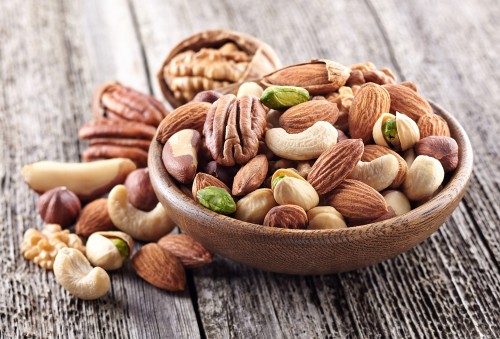The brain is the seat of all vital functions in the human body. How well you nourish it will determine how well you will function in your life. Although the composition and capacity of the human brain are far beyond complex, taking care of it is really not that difficult. And taking care of your brain and improving its health is essential to living a healthy and happy life. Here are 50 things you can do to exercise the brain, and optimize and improve your brain’s health and function. Many of these things are seemingly basic and very obvious, but are just as important.
Each activity will have two ratings given to it.
First is the Effectiveness Rating which rates how effective it is in improving brain function. It’s rated as Very Effective, Effective, or Somewhat Effective.
Second is the Scientific Rating. It is a rating of how much scientific literature is out there that supports the activity in improving brain function. It’s rated as High, Medium, or Low.
Ideally, you want to pick activities that has a High and Very Effective rating as you will get the most bang for your buck that way.
1) Meditate.
Effectiveness Rating: [thrive_highlight highlight=’default’ text=’light’]Very Effective[/thrive_highlight]
Scientific Rating: [thrive_highlight highlight=’#dd3333′ text=’light’]High[/thrive_highlight]
It’s really difficult to think clearly when your mind is full of worries, and that is why meditation helps in promoting brain health. Meditation helps decrease anxiety by having the person sit still and breathe deeply. Aside from decreasing one’s worries, meditation was also found to improve memory, attention span and decision-making. According to Luders, et. al., meditation practitioners have been found to have a greater ability for cognitive functioning because of increased gyri formation (folds that increase the surface area of the brain).
2) Feed your brain with a good dose of Omega-3.
Effectiveness Rating: [thrive_highlight highlight=’default’ text=’light’]Effective[/thrive_highlight]
Scientific Rating: [thrive_highlight highlight=’#dd3333′ text=’light’]High[/thrive_highlight]

Many experts say that fish is the ultimate food for the brain because of its omega-3 content. These essential fatty acids have anti-cancer and anti-inflammatory properties, and are thought to reduce the incidence of hemorrhagic stroke. Research studies also suggest its effect on improving brain function. According to Gomez-Pinilla, omega-3 fatty acids increase levels of molecules important for neuroplasticity such as the brain-derived neurotrophic factor (BDNF), a neurotrophin that regulates the survival, growth and differentiation of nerve cells.
3) Do N-Backs
Effectiveness rating: [thrive_highlight highlight=’default’ text=’light’]Very Effective[/thrive_highlight]
Scientific Rating: [thrive_highlight highlight=’#dd3333′ text=’light’]Low[/thrive_highlight]

N-back tasks are a series of performance tasks used as an assessment tool in cognitive neuroscience to evaluate a certain area of the short-term memory. Considered as the cornerstone brain-training exercise, the n-back task is also considered as a method to boost fluid intelligence. It requires a person to mentally juggle several things simultaneously.
Through a number of experiments have been conducted over the past decade, Susanne Jaeggi of the University of Maryland, College Park, and others have found that participants who train with n-back tasks over the course of approximately a month for about 20 minutes per day not only get better at the n-back task itself, but also experience “transfer” to other cognitive tasks on which they did not train. “The effects generalize to important domains such as attentional control, reasoning, reading, or mathematical skills,” Jaeggi says. “Many of these improvements remain over the course of several months, suggesting that the benefits of the training are long lasting.” There are several good n-back apps on both the Android and Apple marketplace; the one I use is Brain N-Back.
4) Eat leafy vegetables.
Effectiveness rating: [thrive_highlight highlight=’default’ text=’light’]Effective[/thrive_highlight]
Scientific Rating: [thrive_highlight highlight=’#dd3333′ text=’light’]High[/thrive_highlight]

Spinach not only did make Popeye strong; it also made him think more clearly. Spinach and other leafy green vegetables contain essential vitamins and minerals that help prevent dementia. And just like spices, these foods are rich in polyphenols that shield the brain from injury and disease. The antioxidants found in leafy greens have also been associated with preventing the recurrence of strokes and the delaying of symptoms of Parkinson’s and Alzheimer’s disease.
5) Integrate nuts into your diet.
Effectiveness rating: [thrive_highlight highlight=’default’ text=’light’]Effective[/thrive_highlight]
Scientific Rating: [thrive_highlight highlight=’#dd3333′ text=’light’]Medium[/thrive_highlight]

If only squirrels can talk, they could have said that it only takes nuts to boost your brain power. Nuts and seeds are packed with zinc that greatly enhances cognitive performance. A group of physicians at the Duke University Medical Center, North Carolina have studied the effect of zinc on the transmission of impulses in the brain, and discovered that zinc enhances nerve function by regulating the plasticity of synapses (gaps in between neurons that serve as areas of impulse transmission). In addition, nuts and seeds contain vitamin E: a powerful antioxidant that enhances cognitive skills.

You can also just use CILTEP https://nextgen-human.com/ciltep .
It was helpful.thanks and thanks again